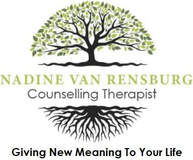News & Advice
Get advice and news for a happier and more fulfilled
life.
life.
|
Can't get that girl or guy out of your head? Daydreaming about the person when you should be working? Imagining your futures together? These dizzying thoughts may be signs of love.
In fact, scientists have pinned down exactly what it means to "fall in love." Researchers have found that an in-love brain looks very different from one experiencing mere lust, and it's also unlike a brain of someone in a long-term, committed relationship. And there are tell-tale signs that you're in love. Thinking this one's special When you're in love, you begin to think your beloved is unique. The belief is coupled with an inability to feel romantic passion for anyone else. Focusing on the positive People who are truly in love tend to focus on the positive qualities of their beloved, while overlooking his or her negative traits. They also focus on trivial events and objects that remind them of their loved one, daydreaming about these precious little moments and mementos. Emotional instability As is well known, falling in love often leads to emotional and physiological instability. You bounce between exhilaration, euphoria, increased energy, sleeplessness, and loss of appetite, trembling, a racing heart and accelerated breathing, as well as anxiety, panic and feelings of despair when your relationship suffers even the smallest setback. Emotional dependency People in love regularly exhibit signs of emotional dependency on their relationship, including possessiveness, jealousy, fear of rejection, and separation anxiety. Feelings of empathy People who are in love generally feel a powerful sense of empathy toward their beloved, feeling the other person's pain as their own and being willing to sacrifice anything for the other person. Aligning interests Falling in love is marked by a tendency to reorder your daily priorities and/or change your clothing, mannerisms, and habits or values so that they better align with those of your beloved. Unfortunately, being in love usually doesn't last forever. It's an impermanent state that either evolves into a long-term, co-dependent relationship that psychologists call "attachment," or it dissipates, and the relationship dissolves. If there are physical or social barriers inhibiting partners from seeing one another regularly — for example, if the relationship is long-distance — then the "in love" phase generally lasts longer than it would otherwise. I am trained to assist you to keep your relationship on track, keep your feelings alive and to experience the joy and happiness of a connected relationship. Contact me at [email protected] or on 084 779 4889. Visit my website at www.nadinetherapy.co.za. Nadine van Rensburg is a counselling therapist specializing in marriage counselling & coaching, couples counselling, pre-marital and family counselling.
0 Comments
|
AuthorI use a meaning and value based approach to help people conquer their problems, challenges, fears and obstacles for a happier and more fulfilled life. Archives
November 2021
Categories |
© 2024. NADINE VAN RENSBURG COUNSELLING THERAPIST. ALL RIGHTS RESERVED. COUNCIL OF COUNSELLORS REGISTRATION: IR 10177
Please Read Our Privacy Policy
Level Four B-BBEE Contributor. Council of Counsellors Registration: IR 10177. Viktor Frankl's Institute SA (VFISA) Registration: 50155. Professional Member of International Association for Counselling (IAC). Professional Member of Mediation Academy Accredited in SA and Internationally by ADR International Register, SAAM (South African Association of Mediators), NABFAM (National Accreditation Board of Family Mediators) and ISO9001 Certified.
